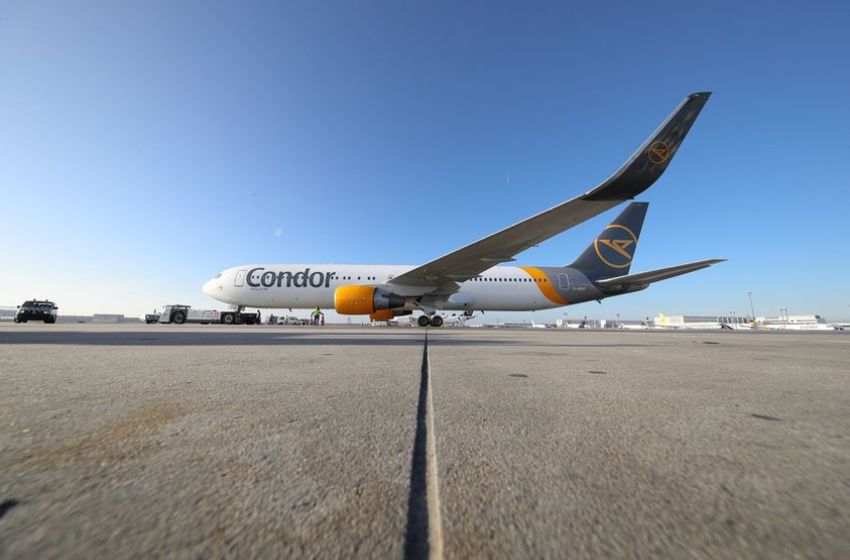Condor Airlines has been a pillar in the world of leisure travel for over six decades, connecting millions of passengers to popular holiday destinations. From its early days of pioneering affordable air travel to its ongoing commitment to innovation and sustainability, Condor has consistently adapted to the changing demands of the aviation industry. This blog takes a closer look at Condor Airlines’ remarkable journey, its impact on air travel, and its vision for the future.
The Early Days: Founding a New Era of Leisure Travel
Founded in 1955, Condor Flugdienst GmbH (Condor Airlines) began with a clear mission: to make air travel accessible and enjoyable for the general public. Starting as a subsidiary of Lufthansa and German travel companies, Condor took its first flight from Frankfurt to Jerusalem, signaling the birth of a new era in affordable leisure air travel. The airline quickly built a reputation for connecting German tourists to popular holiday destinations.
In the 1960s and 1970s, Condor expanded its services to include routes across Europe, North Africa, and beyond, becoming synonymous with holiday travel. The airline’s focus on charter flights for tourists seeking affordable vacations positioned it as a leader in the leisure travel market. During these formative years, Condor laid the foundation for a business model that would cater to budget-conscious travelers while maintaining a commitment to comfort and reliability.

Growing a Reputation: Building Trust Through Customer Experience
Condor’s growth was built on its dedication to delivering a high-quality customer experience at affordable prices. The airline’s strategy included offering attractive package deals and working closely with tour operators to make holidays more accessible. Condor’s reputation grew steadily as it introduced unique services such as pre-bookable meals and inflight entertainment, providing added value to its customers.
The airline’s emphasis on customer service, reliability, and competitive pricing helped it develop a loyal customer base. By the late 1980s, Condor was flying over 4 million passengers annually, cementing its position as Germany’s preferred leisure airline. This success was driven by a simple yet effective strategy: focusing on the needs of vacation travelers, maintaining high standards of service, and constantly innovating to enhance the passenger experience.
Strategic Expansion: Evolving to Meet New Demands
As the aviation industry evolved, so did Condor. The 1990s marked a period of significant growth for the airline, characterized by fleet expansion and the introduction of long-haul flights to destinations in North and South America, Africa, and Asia. This strategic expansion enabled Condor to offer German travelers a broader range of holiday destinations, solidifying its status as a key player in the leisure travel sector.
During this period, Condor also embraced technology to streamline operations and enhance the customer experience. The airline was among the first to offer online booking and check-in, providing passengers with greater convenience and flexibility. By modernizing its fleet and adopting new technologies, Condor positioned itself to compete effectively in an increasingly competitive market, while still adhering to its core principles of affordability and customer satisfaction.
Navigating Challenges: Adapting in a Changing Industry
Like many airlines, Condor faced its share of challenges, from economic downturns to fluctuations in fuel prices and changing consumer preferences. However, Condor’s ability to adapt to these challenges has been key to its continued success. During the 2000s, the airline underwent several ownership changes, with the most recent being its acquisition by the Polish Aviation Group (PGL) in 2020. Each transition brought new opportunities and challenges, but Condor remained focused on delivering value to its customers.
The COVID-19 pandemic presented an unprecedented challenge, grounding flights worldwide and severely impacting the aviation industry. Condor responded by optimizing its operations, maintaining a strong focus on customer safety, and gradually rebuilding its network as travel restrictions eased. Through these efforts, the airline demonstrated its resilience and adaptability, reinforcing its commitment to connecting people to their dream destinations.
A Look to the Future: Sustainability and Innovation
Condor is not only looking to the future but also actively shaping it through its commitment to sustainability and innovation. The airline recognizes the growing importance of environmental responsibility and has made significant investments in sustainable aviation. With the introduction of new, more fuel-efficient aircraft, Condor aims to reduce its carbon footprint and promote eco-friendly travel.
Condor’s future plans also include the continued use of sustainable aviation fuels (SAFs), minimizing waste, and reducing single-use plastics on flights. Furthermore, the airline is embracing digital innovation, using data analytics to enhance operational efficiency and improve the passenger experience. These initiatives demonstrate Condor’s dedication to evolving with the times and ensuring a sustainable future for air travel.
Customer-Centric Approach: Meeting Modern Traveler Expectations
Condor’s future vision remains rooted in its customer-centric philosophy. Understanding that today’s travelers have diverse needs, the airline is committed to offering a variety of options that cater to different budgets and preferences. From Economy and Premium Economy to Business Class, Condor provides flexibility and choice for all types of travelers.
In addition to comfort and affordability, Condor is enhancing its digital platforms to improve the customer journey. The airline’s website and mobile app offer seamless booking experiences, personalized travel information, and real-time updates, ensuring a smooth travel experience from start to finish. These efforts reflect Condor’s commitment to meeting the evolving expectations of modern travelers.

Conclusion: Condor’s Journey Forward
Condor Airlines has come a long way from its humble beginnings as a leisure airline, pioneering affordable travel for holidaymakers. Through strategic growth, adaptability, and a commitment to quality service, the airline has weathered industry challenges and emerged as a leader in the market. Looking forward, Condor’s focus on sustainability, innovation, and customer-centricity positions it well for continued success. As it navigates the skies, Condor remains dedicated to making travel accessible and enjoyable for all, ensuring that the spirit of adventure lives on in every journey.



